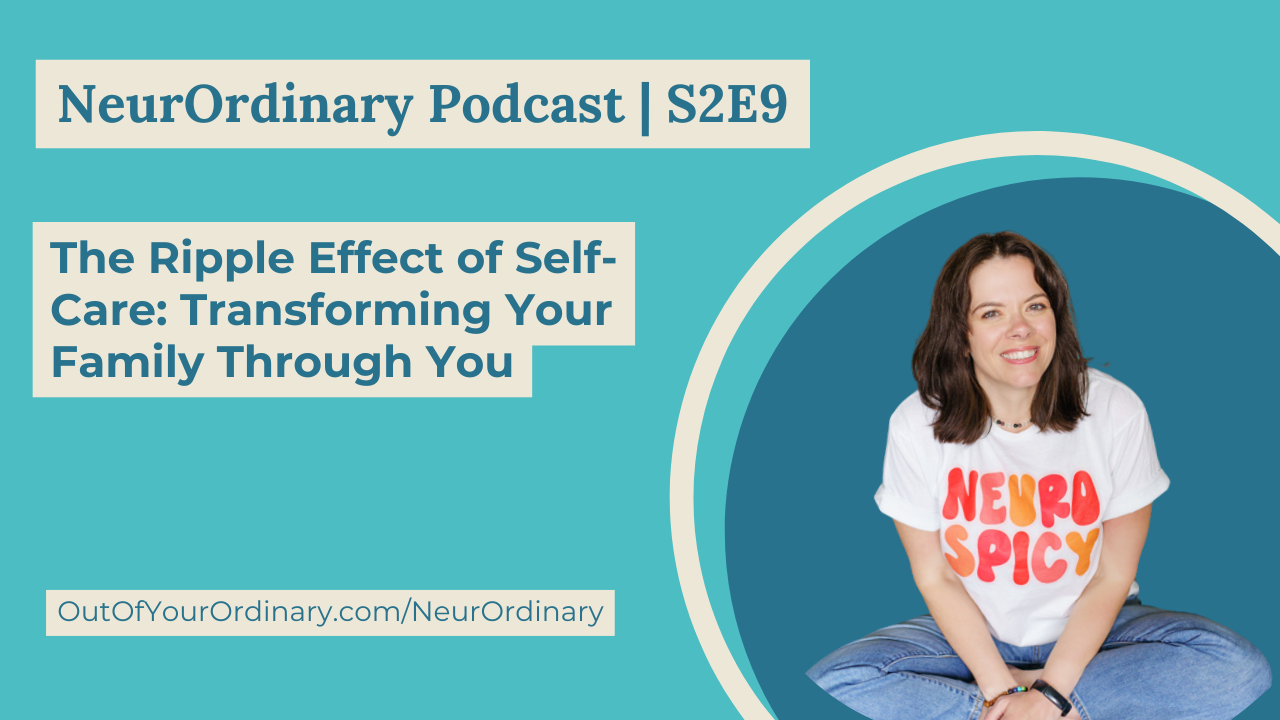
If you're a parent of an autistic child, understanding how autism shows up differently in girls is key to providing the best support for your daughter.
While autism in boys often gets more attention, girls frequently exhibit different traits that might be overlooked. Knowing these differences can help you nurture your daughter’s strengths and ensure she gets the right support...and diagnosis!
Let’s explore these distinctions and focus on why your self-care as a parent is crucial during this journey.
The Subtle Signs: Why Autistic Girls are Often Overlooked
Autism in girls can be harder to spot because they often hide their struggles better than boys. Girls might mimic social behaviors and blend in more easily with peers, which can lead to late or missed diagnoses. This ability to camouflage, called masking, can put a lot of emotional strain on them, making self-care important for both you and your daughter.
Autistic girls often develop strong masking and/or coping strategies to help them successfully navigate social interactions. They may study and imitate the behaviors of their neurotypical peers, learning to mimic gestures, expressions, and social cues to fit in.
While this can help them blend in, it often comes at a significant cost. The effort required to constantly mask their true selves can be exhausting and overwhelming, leading to increased anxiety and emotional distress.
Additionally, the social pressures faced by girls can exacerbate these challenges. Society often expects girls to be more socially adept and nurturing, which can push autistic girls to hide their struggles even more.
They may work tirelessly to meet these expectations, only to feel more isolated and misunderstood when they can't maintain the facade. This ongoing effort to appear neurotypical can result in burnout and a sense of alienation, making it crucial for parents to recognize the signs and support their daughters in a way that acknowledges their unique experiences.
Understanding the concept of masking is vital for parents. It involves recognizing the subtle signs that might indicate your daughter is working hard to fit in. These can include mimicking conversations without truly understanding them, withdrawing after social interactions to recharge, or expressing emotions in private that they keep hidden in public. By being aware of these behaviors, parents can create a more supportive environment that encourages authenticity and reduces the need for constant masking.
Supporting a daughter who masks her autism requires patience, understanding, and a lot of emotional energy. Taking time for your own self-care helps you stay resilient and emotionally available. Practicing mindfulness, seeking support from other parents, and setting aside time for relaxation can make a big difference in maintaining your well-being. In turn, this enables you to provide the steady, empathetic support your daughter needs to thrive.
Encouraging your daughter to embrace self-care is equally important. Help her find activities that allow her to unwind and express herself authentically, whether through creative outlets, physical activity, or simply quiet time alone. Teaching her the value of self-care early on can empower her to manage stress and maintain emotional balance as she navigates the complexities of growing up autistic.
Behavioral Traits and Coping Mechanisms
Girls on the spectrum might use various coping strategies to manage their sensory sensitivities and social challenges. These strategies are unique to each child and can be incredibly effective in helping them navigate their world.
For instance, they might engage in imaginative play, creating elaborate scenarios and stories that allow them to process their experiences and emotions in a safe and controlled way. This type of play can be a powerful tool that helps them express their thoughts and feelings and process the world around them.
Additionally, autistic girls might create and adhere to specific routines that provide a sense of stability and predictability. These routines can help them feel more in control of their environment and reduce anxiety. Whether it's following a particular sequence when getting ready in the morning or having a set pattern for after-school activities, these routines can offer comfort and a sense of order in an otherwise chaotic world.
Respecting these coping strategies is crucial!
Acknowledging and supporting your daughter's unique ways of managing her sensitivities and challenges helps her feel validated and understood. It's equally important to incorporate your own self-care routines to stay mentally and emotionally healthy.
Balancing your needs with those of your child can be challenging, but it's essential for your well-being and your ability to support her effectively.
Here are some ways you can support your daughter while also taking care of yourself:
- Acknowledge and Encourage Imaginative Play: Let your daughter engage in imaginative play and join in when appropriate. This can strengthen your bond and provide insight into her world.
- Support Routine Building: Help your daughter establish and maintain routines that make her feel secure. Consistency can be reassuring for both of you.
- Create a Sensory-Friendly Environment: Pay attention to sensory triggers and make adjustments at home to create a comfortable space for her.
- Practice Mindfulness Together: Engage in mindfulness activities such as deep breathing or meditation to help both of you manage stress and stay grounded.
- Prioritize Your Own Self-Care: Set aside time each day for activities that replenish your energy and lift your spirits, whether it’s reading, exercising, or simply relaxing.
- Seek Support Networks: Connect with other autism parents for advice, support, and camaraderie. Sharing experiences can be incredibly validating and helpful. Join us inside Neurodivergent & Autism Parenting | Self-Care Support Squad for daily self-care tips and resources!
By respecting your daughter's coping strategies and making time for your own self-care, you create a nurturing environment where both of you can thrive. Balancing these aspects can lead to a healthier, happier family dynamic.
Social Connections and Communication Differences
While autistic boys often show more obvious social challenges, girls might have less visible challenges…
Friendships can be a tricky area for autistic girls. They often find it easier to make friends initially, thanks to their ability to mimic social behaviors. However, maintaining these friendships can be more challenging. They may face difficulties with the nuances of social interaction, such as understanding social cues, maintaining conversations, and navigating the give-and-take nature of relationships. These challenges can sometimes lead to misunderstandings or feelings of isolation.
Autistic girls often have strong interests and passions, which might seem typical on the surface but can be much more intense and all-consuming. For example, your daughter might have a deep love for animals, spending hours reading about them, watching documentaries, and talking about them. Or she might be passionate about books, immersing herself in stories and collecting volumes on her favorite topics. These interests can serve as a source of comfort and joy but can also make it difficult for her to relate to peers who don't share the same level of enthusiasm.
Understanding these nuances is crucial for providing the right support!
Recognizing that your daughter's intense interests are a part of her unique way of engaging with the world allows you to celebrate her passions rather than see them as a hindrance. Encouraging her to explore and develop these interests can boost her confidence and provide a sense of accomplishment. At the same time, helping her find social groups or activities where she can connect with others who share her interests can make forming and maintaining friendships easier and more fulfilling.
Supporting your daughter in a way that feels right for her means acknowledging her individual strengths and challenges. It involves being patient and understanding when she struggles with social situations and offering guidance and encouragement when she needs it.
It also means advocating for her in school and other social settings, ensuring that she has the support she needs to thrive. By doing so, you help create an environment where she can be herself, feel valued, and build meaningful relationships.
Emotional Expression and Sensitivity
Autistic girls are often more emotionally sensitive, which can be both a strength and a challenge. Their heightened sensitivity allows them to be incredibly empathetic, often picking up on the feelings and moods of those around them with remarkable accuracy. This empathy can help them form deep, meaningful connections with others and provide comfort and support to friends and family.
However, this same sensitivity can also make them more prone to anxiety and depression. They may find themselves overwhelmed by their emotions or the emotions of others, leading to heightened stress and emotional distress. This can manifest in various ways, such as feeling anxious in social situations, struggling with changes in routine, or experiencing intense reactions to seemingly minor events.
Creating a space for your autistic daughter to safely express all her feelings is crucial.
Encourage open communication and let her know that it's okay to feel and express a wide range of emotions. Providing a supportive environment where she feels heard and understood can help her navigate her emotional landscape more effectively. This might involve setting aside regular times to talk about her day, using creative outlets like art or writing to express feelings, or practicing relaxation techniques together.
And don’t forget about your own emotional well-being—you need to take care of yourself to be there for her! Let’s talk more about that in the next section…
Prioritizing Self-Care in Your Parenting Journey
Raising an autistic daughter means you need to balance her needs with your own well-being. Try adding mindfulness practices like meditation or yoga into your daily routine to help manage stress. Connect with support groups or online communities to share experiences and get advice from other parents. Remember, self-care isn’t a luxury—it’s a necessity. By taking care of yourself, you show your daughter healthy habits and build the strength you need for this journey.
Here are some of my favorite self-care resources to get you started!
Conclusion
Navigating the unique traits of autism in girls requires patience, understanding, and a lot of love. As you support your daughter, don’t forget to prioritize your own well-being. Incorporating self-care practices into your daily routine isn’t just beneficial—it’s essential.
Take time for yourself to relax, recharge, and connect with supportive communities. It will help you maintain the energy and resilience needed for this journey. Remember, you aren’t just a parent…you are your autistic daughter’s role model for what self-care looks like!
When we prioritize self-care, we teach our daughters the importance of taking care of themselves, too. Embrace this journey with a full heart and a well-rested mind, knowing that your well-being is just as important as your daughter’s. Together, you can grow and find joy in the everyday moments.
And if you need support, contact me today to discover how self-care coaching can help you and your daughter, thrive!





